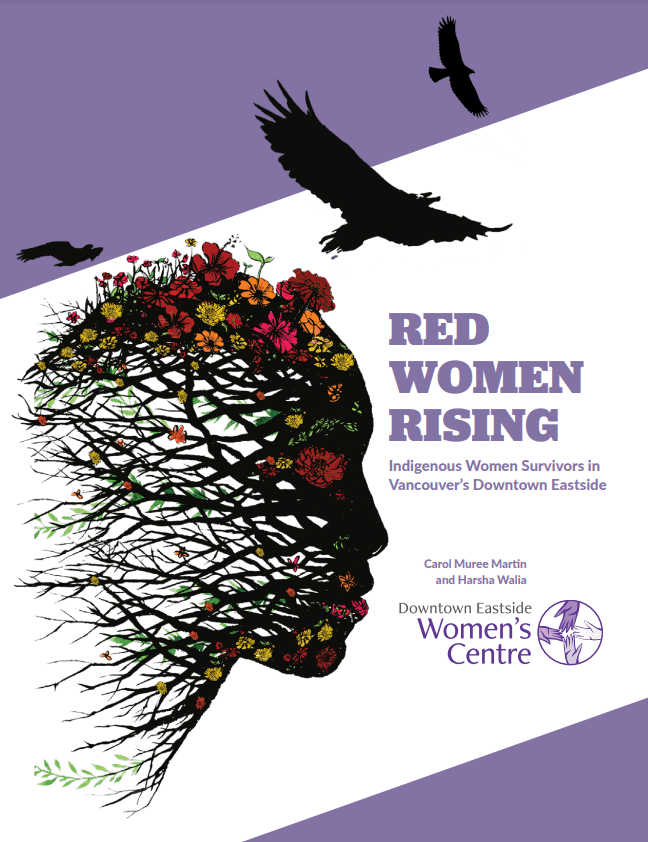20 search results
for
Indigenous organizations
Active Indigenous women’s leadership
Recommendation 2: All levels of Canadian government, national aboriginal organizations, and nonprofit agencies must ensure the active leadership of Indigenous women in the design, implementation, and review of programs and policies that are directed to increase the safety of Indigenous women. Strengthen and support solutions that restore the role of Indigenous women, girls, and two-spirit people as Title-holders of their lands, traditional knowledge keepers, sacred life-givers, and matriarchs within extended kinship networks.-
Category and theme:
Audience:
Groups affected:
Eliminating structural violence against Indigenous women and girls
Recommendation 3: Increased state enforcement alone cannot eliminate violence against Indigenous women and girls because structural violence is connected to individual acts of male violence. A comprehensive national-level integrated action plan to eliminate violence against Indigenous women and girls must address all the socio-economic factors impacting Indigenous women’s, girls’, trans and two-spirit’s safety including equitable access and self-determination over land, culture, language, housing, child care, income security, employment, education, and physical, mental, sexual and spiritual health.-
Category and theme:
Audience:
Groups affected:
Immediate services needed in the DTES
Recommendation 16: At least one multipurpose Indigenous Women’s Centre in the DTES that is run by and for Indigenous women with long-term funding and wrap-around supports including healing support, communal kitchen, child care facility, elder accompaniment, artisan training and vending, and 24/7 educational, cultural, recreational, and empowerment-based programming to bring Indigenous women together collectively. This would also serve as a single point of access to connect to integrated services.-
Category and theme:
Audience:
Groups affected:
Immediate services needed in the DTES
Recommendation 17: Fund more 24/7 low-barrier emergency shelters, transition homes, and drop-ins for women with long-term funding and full wrap-around supports. Also fund more Indigenous-centered and community-based, rather than police-based, victim services programs that provide holistic support including connection to land-based healing and guidance from elders.-
Category and theme:
Audience:
Groups affected:
Immediate services needed in the DTES
Recommendation 18: An Indigenous Health and Wellness Centre in the DTES and Indigenous-run health programs that use Indigenous methods to address physical, mental, sexual, emotional, and spiritual harms. Also fund more mobile healthcare vans and community-based clinics, street nurses, and healthcare providers in the DTES.-
Category and theme:
Audience:
Immediate services needed in the DTES
Recommendation 23: Fund an Indigenous legal clinic in the DTES that can support Indigenous women in all criminal and civil legal matters including but not limited to family, criminal, mental health, and poverty law issues.-
Category and theme:
Audience:
Immediate services needed in the DTES
Recommendation 24: Fund a Bear Clan Patrol in the DTES that is led by Indigenous residents and based on Indigenous reciprocal responsibilities of safety, security, and kinship.-
Category and theme:
Audience:
Groups affected:
Recommendations to end Indigenous women’s displacement from land
Band councils
Recommendation 50: Aboriginal governments should provide mandatory training for band councillors and community leaders to ensure that they treat the issue as a high priority.-
Category and theme:
Recommendations to end Indigenous women’s displacement from land
Band councils
Recommendation 51: Aboriginal governments should increase funding for education and programs regarding violence prevention directed at children, youth, and adults with an emphasis on consent, sexual education, and healthy relationships.-
Category and theme:
Groups affected:
Recommendations to end Indigenous women’s displacement from land
Band councils
Recommendation 52: Aboriginal governments should fund community-based education to ensure that the historical and cultural importance of two-spirit identity is widely understood, supported, and promoted.-
Category and theme:
Groups affected:
